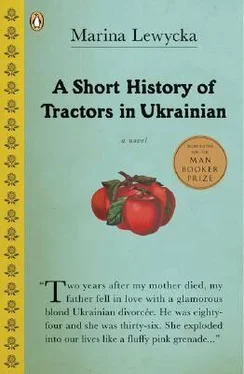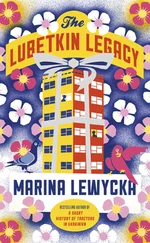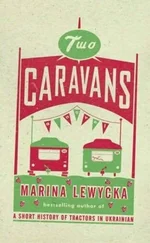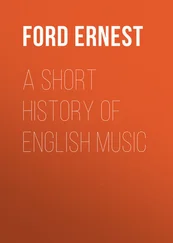Here are the rubbery accoutrements of death-the nurse’s latex gloves, the waterproof sheet on the bed, spongy-soled slippers, a pack of glycerine suppositories gleaming like golden bullets, the commode with its functional cover and rubber-tipped legs, now full of a lumpy greenish liquid.
“Do you remember…?” I recite the stories of her and our childhood over and over again.
Her eyes flicker darkly. In a lucid moment, her hand in mine, she says, “Look after poor Kolya.”
He was with her when she died in the night. I remember the roar of his pain. “Me too! Me too! Take me too!” His voice thick, strangled; his limbs rigid, as though gripped by a convulsion.
In the morning, after they had taken her body away, he sat in the back room with a haunted look on his face. After a while he said, “Did you know, Nadezhda, that apart from the mathematical proof of Pythagoras there is also a geometric proof? Look how beautiful it is.”
On a sheet of paper, he drew lines and angles, connected with small symbols, and murmured over them as he unfolded the equation.
He’s completely off his trolley, I thought. Poor Kolya.
In the weeks before she died, Mother worried as she lay propped up on the pillows of a hospital bed. Linked with wires to a monitor that recorded the pitiful pulsing of her heart, she grumbled about the mixed ward with only the privacy of a cursorily drawn curtain, and the intrusive noises of the wheezing, coughing, snoring old men. She flinched under the impersonal, stubby fingers of the young male nurse who came to tape the wires above shrunken breasts, carelessly revealed under the hospital gown. She was nothing but a sick old woman. Who cared what she thought?
Quitting life is harder than you think, she said. There are so many things to be taken care of before you can depart in peace. Kolya-who would take care of him? Not her two daughters-clever girls, but so quarrelsome. What would happen to them? Would they find happiness? Would they be provided for by those charming but good-for-nothing men they had ended up with? And the three granddaughters-so pretty and no husbands yet. Still so much to sort out, and her strength was failing.
Mother wrote her will out in hospital, while my sister Vera and I both stood over her, because neither of us trusted the other. She wrote it out in her quavering longhand, and two of the nurses witnessed it. She was weak now, who for so many years had been strong. She was old and sick, but her legacy, her life savings, throbbed full of life in the Co-op bank.
One thing she was definite about-it shouldn’t go to Pappa.
“Poor Nikolai, he’s got no sense. He’s too full of crazy schemes. Better you two will have half and half.”
She talked in her own DIY language-Ukrainian sprinkled with words like handheldblendera, suspenderbeltu, green-fingerdski.
When it was dear that there was nothing more they could do in hospital, they discharged her to die at home in her own time. My sister spent most of the last month up there. I visited at weekends. It was some time during that last month, when I wasn’t there, that my sister wrote out the codicil dividing the money equally among the three granddaughters, my Anna, and her Alice and Alexandra, instead of between my sister and myself. My mother signed it, and two neighbours witnessed it.
“Don’t worry,” I said to Mother before she died, “everything will be all right. We’ll be sad, and we’ll miss you, but we’ll be all right.”
But we weren’t all right.
They buried her in the churchyard in the village, in a new plot that bordered on to open country. Her grave was the last in a row of new neat graves.
The three granddaughters, Alice, Alexandra and Anna, tall and blonde, threw roses into the grave, then handfuls of earth. Nikolai, bent with arthritis, grey-skinned, vacant-eyed, dung to my husband’s arm in tearless grief. The daughters, Vera and Nadezhda, Faith and Hope, my sister and I, prepared to do battle over our mother’s will.
When the funeral guests come back to the house, to pick at cold refreshments and get tipsy on Ukrainian samohonka, my sister and I confront each other in the kitchen. She is wearing a black knitted silk two-piece from some discreet little second-hand dress agency in Kensington. There are small gold buckles on her shoes and she carries a Gucci handbag with a little gold clasp, and a fine gold chain hangs around her neck. I am wearing an assortment of black garments I found in Oxfam. Vera looks me up and down critically.
“Yes, the peasant look. I see.”
I am forty-seven years old and a university lecturer, but my sister’s voice reduces me instantly to a bogey-nosed four-year-old.
“Nothing wrong with peasants. Mother was a peasant,” four-year-old retorts.
“Quite,” says Big Sister. She lights a cigarette. The smoke curls upwards in elegant spirals.
She bends forward to replace the lighter in her Gucci bag, and I see that on the gold chain round her neck hangs a little locket, tucked away inside the lapels of her suit. It looks old-fashioned and quaint against Vera’s stylish outfit, as though it doesn’t belong. I stare. Tears are in my eyes.
“You’re wearing Mother’s locket.”
It is Mother’s only treasure from Ukraine, small enough to hide in the hem of a dress. It was a gift from her father to her mother on their wedding day. Inside the locket, their two photographs smile fadedly at each other.
Vera returns my gaze.
“She gave it to me.” (I cannot believe this. Mother knew I loved the locket, coveted it more than anything. Vera must have stolen it. There is no other explanation.) “Now, what exactly do you want to say about the will?”
“I just want things to be fair,” I whine. “What’s wrong with that?”
“Nadezhda, it’s enough that you get your clothes from Oxfam. Must you get your ideas there also?”
“You took the locket. You pressured her into signing the codicil. Split the money equally among the three granddaughters, instead of between the two daughters. That way, you and yours get twice as much. Greedy.”
“Really, Nadezhda. I’m shocked that you could think this way.” Big Sister’s groomed eyebrows quiver.
“Not nearly as shocked as I was when I found out,” Bogey-nose bleats.
“You weren’t there, were you, my little sister? You were off doing your wonderful thing. Saving the world. Pursuing your career. Leaving all the responsibility to me. As you always do.”
“You tormented her last days with stories of your divorce, of your husband’s cruelty. You chain-smoked at her bedside while she lay dying.”
Big Sister flicks the ash from her cigarette and sighs theatrically.
“You see, the trouble with your generation, Nadezhda, is that you’ve just skated over the surface of life. Peace. Love. Workers’ Control. It’s all idealistic nonsense. You can afford the luxury of irresponsibility, because you’ve never seen the dark underside of life.”
Why does my sister’s upper-class drawl infuriate me so much? Because I know it’s fake. I know about the single bed we shared and the toilet across the yard and the squares of torn newspaper to wipe your bum. She can’t fool me. But I have my ways of needling her, too.
“Oh, it’s the dark underside that’s bothering you? Why don’t you go and get some counselling?” I suggest slyly in my best professional let’s-be-sensible voice, my look-how-grown-up-I-am voice, the voice I use with Pappa.
“Please don’t talk to me in that social-worker voice, Nadezhda.”
“Get some psychotherapy. Get to grips with that dark underside, flush it out into the open, before it eats you away.” (I know this will infuriate her.)
“Counselling. Therapy. Let’s all talk about our problems. Let’s all hug each other and feel better. Let’s help the underprivileged. Let’s give all our money to the starving babies.”
Читать дальше












